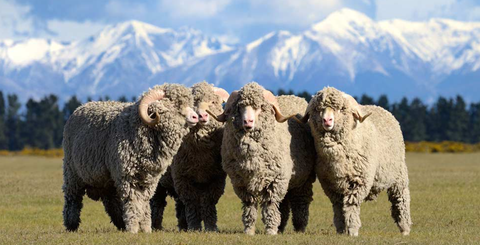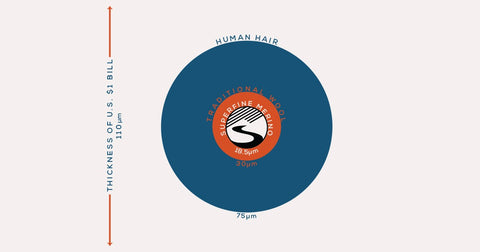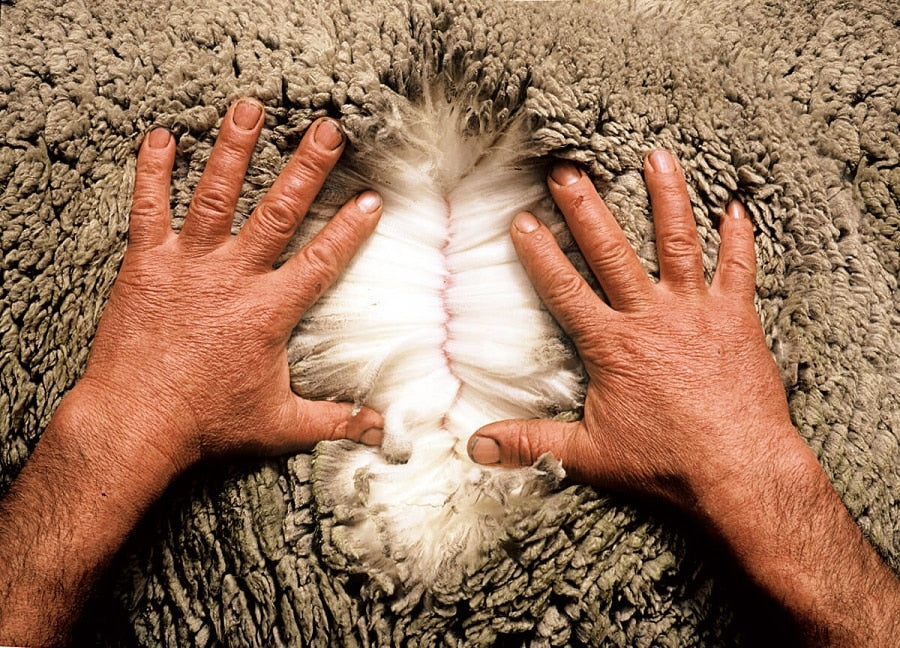People started making clothing out of wool 10,000 years ago. Today wool remains an excellent natural choice for those who seek a high level of performance and comfort from their clothing. Wool garments are ideal for active outdoor activities because they are warm, breathable and wick moisture away from your skin. Wool has the ability to keep you warm in the winter and lighter weight wool garments can keep you cool in the summer.
What is Merino Wool?
Merino wool comes from Merino sheep. This breed has origins in Spain but is now raised in many locations throughout the world, with Australia being the number 1 producer. Merino sheep are prized for the high-quality wool they produce.
Packing Light
Due to its odor management and temperature regulating properties, Merino wool is a favorite for adventurers and travelers. A garment that does not get smelly after days of wear, and works in a wide range of temperatures helps one pack lighter while traveling, bike touring or camping. Merino sheep do not have the luxury of packing a change of clothes; instead, they rely exclusively on their wool for survival in a broad range of temperatures and conditions. It is because of these natural properties that Merino wool is the perfect choice for environments that necessitate changes in temperature regulation.
Why are Merino sheep and Merino wool so special?
Merino sheep are special because the wool they produce is made of fibers that have a very small diameter. The slimmer the individual fibers, the softer a fabric made from that material fabric will feel. Merino wool fibers are typically less than 24 microns in diameter.
What the heck is a micron?
Microns are the most common unit of measurement for wool fibers. A micron is the same as a micrometer: a unit of measurement equal to one-millionth of a meter. For perspective, an average human hair is 75 microns. The wool fibers of that itchy novelty sweater you wore to last year’s office holiday party probably contains wool with fibers in the range of 30 microns. The Merino wool used in Showers Pass’ products, like the Apex Tech Tee, is classified as superfine, which means that they are less than 18.5 microns in diameter. This is about the same thickness as cotton fibers, meaning that garments made from superfine Merino wool will have a comparable feel and softness to cotton.

Merino Wool vs Synthetics
One of the main benefits of Merino wool is that its natural loft makes it a better insulator than synthetics relative to thickness and weight. Like all wool garments, it retains its insulative and temperature regulating properties when wet.
However, Merino wool is a lot more than just a winter-warmer. Merino wool garments excel in all seasons. Unlike synthetic fibers, wool fibers are porous, which contributes to great breathability and moisture-wicking properties. 150 gm Merino wool garments are ideal for summer activities where breathability, sun protection and moisture management are important. Unlike synthetic clothing, Merino wool clothing is biodegradable, and will naturally decompose without adding toxins to the environment.

Merino wool also has great anti-odor properties. You may have noticed that even after washing, your workout gear still stinks. You’re not alone! There are hundreds, if not thousands of forums online full of folks discussing tips and tricks for “de-stinking” their synthetic t-shirts and shorts. This is because activewear, including running tops, yoga pants, and bike jerseys, often employ the use of non-round polyester fibers. Non-round fibers have a flatter, ribbon-like shape and often have ridges on their surface. This shape increases the surface area of the fiber and helps wick moisture through capillary action. However, these ridges can also trap bacteria and oils from skin and sweat as they wick, making your clothing smelly. In addition to its unique structure, Merino wool has natural anti-microbial properties that help keep the stank off.
Corespun Merino
Corespun Merino is created by wrapping natural wool fibers around a synthetic nylon core. Fabrics made from corespun threads can combine the softness and desirable properties of natural fibers with the durability and shape retention of synthetics. They’re easy to care for and require no special washing instructions. While washing on a gentle cycle and hang drying is always best, with corespun Merino wool, you don’t have to panic if you accidentally toss your favorite Showers Pass shirt in the dryer. The shirt will be just fine, although you probably could have saved some electricity hang drying it, as wool is quick drying!







